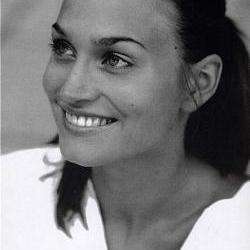It’s more than a little surprising that Francesco Cilea’s Adriana Lecouvreur is first gracing the stage of the Staatsoper in 2014, 112 years after the opera's première. It is, therefore, disappointing that this co-production with Covent Garden is not more successful, despite its many excellent qualities. The production, as is to be expected from David McVicar, is pleasing to the eye as well as set in its traditional period: Paris in the 1730s. This alone is enough to infuriate hard-core proponents of Regietheater, but is quietly refreshing for the rest of us, if not provocative in the least.
The sets by Charles Edwards reflect the theme of stages within the stage. The first and fourth acts takes place backstage of the Comédie-Française theatre, darkly lit, with an elevated second stage rotating upstage. The second finds itself in the home of an unseen actress, and the third in a performance hall with another raised stage. From here Andrew George’s ballet is danced and Lecouvreur hurls ill-advised insults at her powerful host and rival. Adam Silverman's lighting is tasteful, and Brigitte Reiffenstuel’s costumes are opulent and gorgeous from the divas down to the smallest roles.
Despite McVicar’s attention to detail and careful direction of the cast, dramaturgically the libretto is borderline disastrous, making it difficult to get invested in the characters. Just reading the convoluted plot of Act I is enough to bring on a migraine, and it’s hard not to be bored by the general lack of verbal charm and character development. The story contains countless affairs, swapped letters, intrigues, and finally madness and death by poisoned violets. Even by the standards of opera libretti, the audience has a hard time suspending their disbelief under the weight of such ridiculousness. Moreover, a number of supporting cast members (Jongmin Park, Jinxu Xiahou, Bryony Dwyer, Juliette Mars, Alexandru Moisiuc, Raúl Giménez) are offered nothing to contribute to the storyline. For this reason, at the end of the night they fade completely from memory despite excellent voices and gorgeous garb. Having the theatre cast pay homage to the dying diva at the end of the work from upstage was a classy touch by McVicar, but not enough to round out very flatly written characters.
In terms of the leading roles, it was also a mixed bag. Although Angela Gheorghiu, in the title role, certainly looks the part of the beautiful diva and has legato lines, beautiful colours and astounding control of pianissimi, her soprano did not cut through during the busier sections, particularly through Act I. She was only truly breathtaking in the final scenes, where the scoring is much lighter and the dynamic levels generally low, and there she absolutely brought down the house. For the rest of the evening, I was left wondering if she was holding back vocally for health reasons or if the role is simply not suited to her voice.
Tenor Massimo Giordano, playing Maurizio, her lover, also seemed poorly cast. He has a beautiful tone, but the voice was not consistently placed and he did not seem comfortable singing legato. He had some intonation issues and despite being tall and attractive, lacked charisma. Things began to improve musically with Act II and the entrance of Elena Zhidkova, playing the Princess de Bouillon, Lecouvreur’s rival for Maurizio’s affection. Blessed with gorgeous vocal colour, power to spare and a jawline that could chisel glass, she incorporated perfectly the scorned, beautiful, aristocrat and her performance and vocal splendour alone made the performance well worth attending. Roberto Frontali also gave a pleasing performance in the role of Michonnet, the old souffleur secretly in love with the diva.
Evelino Pidò conducted with attention to the singers and great energy, and although the first act missed the mark a bit, musically things improved continuously throughout the evening. Cilea’s score is full of wonderful themes, motifs and gorgeous colouring which make it easy to forgive the libretto’s comparative weakness. Although it is likely few people’s favorite opera, it definitely merits a place in the repertory and I hope that we won’t have to wait another 112 years to see it performed here again.


